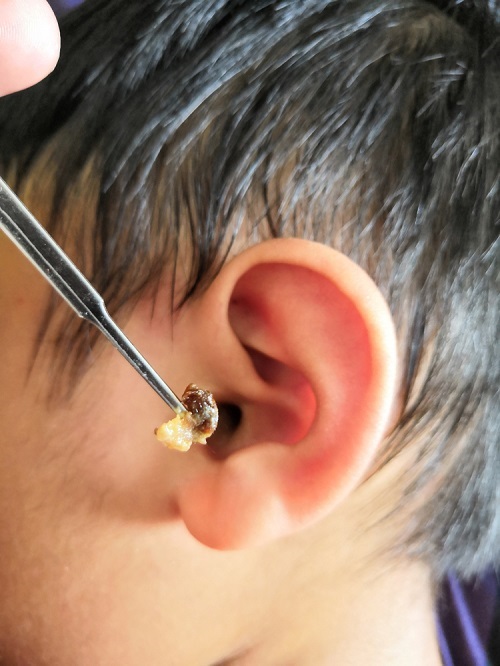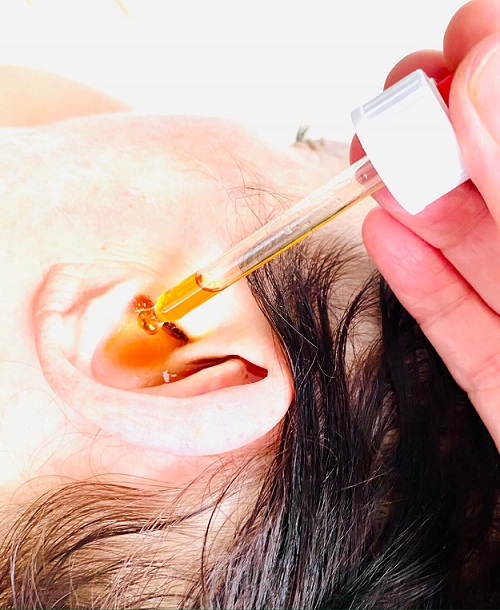Are you tired of dealing with ear infections and wondering Can You Put Castor Oil In Your Ear? Let’s understand the science behind it!
If you’re looking for a natural way to treat ear infections and earaches, castor oil might be the answer! In this article, we’ll explore the implications of using castor oil in your ears and how it can improve your overall health!
Can You Use Castor Oil for Bald Patches? Here’s The Detailed Information!
Can You Put Castor Oil In Your Ear?

Yes, you can put castor oil in your ear!
If you’re curious about using castor oil for ear troubles, here’s the lowdown. Castor oil has been a go-to for minor ear issues thanks to its anti-inflammatory properties. It’s great for easing simple ear discomforts like dryness or itching. Castor oil can be particularly helpful for treating ear infections due to its antimicrobial properties, as it contains fatty acids that provide relief. It is also useful for alleviating earaches, removing excess ear wax, and even reducing the symptoms of tinnitus and vertigo.
But here’s a crucial tip—it’s not a cure-all. For more serious conditions like infections or eardrum complications, castor oil might not be your best bet. Professional medical advice is key in these scenarios. So, while castor oil can be a handy home remedy, remember that ear health is delicate and deserves careful attention.
When To Use Castor Oil In Ear?
- If you’re experiencing discomfort or reduced hearing due to stubborn earwax, castor oil can be a natural solution.
- For mild ear infections, consider castor oil for its anti-inflammatory properties. Remember, it complements but doesn’t replace medical treatment.
- In arid climates or if you have dry ears, applying a drop or two of castor oil can help maintain ear moisture.
- Before swimming, consider applying castor oil to create a protective barrier against water, potentially reducing the risk of swimmer’s ear.
- If you have occasional earaches, castor oil’s soothing properties may provide relief. Apply a few drops as needed.
- Some individuals find that castor oil helps alleviate the symptoms of tinnitus (ringing in the ears). Experiment cautiously.
- Before air travel, when changes in air pressure can affect the ears, applying castor oil may help ease discomfort.
Potential Benefits of Using Castor Oil in Ear

1. Removes Earwax Efficiently
Castor oil is a gentle yet effective warrior against that stubborn earwax. This oil, with its secret weapon—ricinoleic acid works like magic to soften and break down the wax. It’ll carefully remove that bothersome buildup, making your ears feel clearer and more comfortable.
2. Fights Inflammation
If your ear feels a bit irritated, ricinoleic acid in castor oil steps in like a soothing balm, calming down that irritation and reducing any inflammation. It’s like having a gentle, comforting hand easing those minor earaches, especially those niggling ones that just won’t let up.
3. Moisturizes Dry Ears
Dry ears are quite annoying, aren’t they? Rich in omega-3 fatty acids, castor oil helps keep the inside of your ears moisturized. It’s perfect for preventing dryness and itchiness, especially in less humid environments.
4. Creates a Protective Barrier
Before you jump into the pool, give your ears a little shield with castor oil. Applying it beforehand can be like setting up a tiny, invisible barrier, keeping that pesky water from causing any trouble, like a swimmer’s ear. It comes in handy for those who love the water but not the ear problems that sometimes come with it.
5. Soothes Earache
Castor oil’s soothing properties can help temporarily relieve earaches. It acts by reducing pain and discomfort, providing a sense of relief to individuals experiencing minor ear pain. However, do note that this is not a substitute for professional medical treatment when needed.
Can You Use Castor Oil As A Lube? Learn More About It Here!
How To Use To Use Castor Oil In Ear?
- Opt for pure, organic, cold-pressed castor oil. This ensures you’re using a product free from additives or harmful chemicals.
- Before using, apply a small amount of castor oil to your skin and wait for 24 hours. Any signs of redness, itching, or swelling mean you should avoid using it in your ear.
- Warm the castor oil slightly by placing the bottle in warm water. Warm oil works better than cold oil, as it penetrates the ear more efficiently.
- Tilt your head to one side and use a dropper to put 2-3 drops of warm castor oil into the affected ear. Don’t rush this process.
- Keep your head tilted for about 5 minutes. This allows the oil to go deep into the ear canal. You can gently place a cotton ball at the ear opening to prevent the oil from leaking out.
- For maximum effectiveness, do this twice a day. However, don’t overdo it. More isn’t always better.
- If you’re dealing with severe ear pain or suspect an ear infection, consult a healthcare professional before trying home remedies.
- For added benefits, some people use castor oil packs over the ear. This involves soaking a piece of cloth in castor oil and placing it over the ear, then covering it with a heat source like a hot water bottle.


